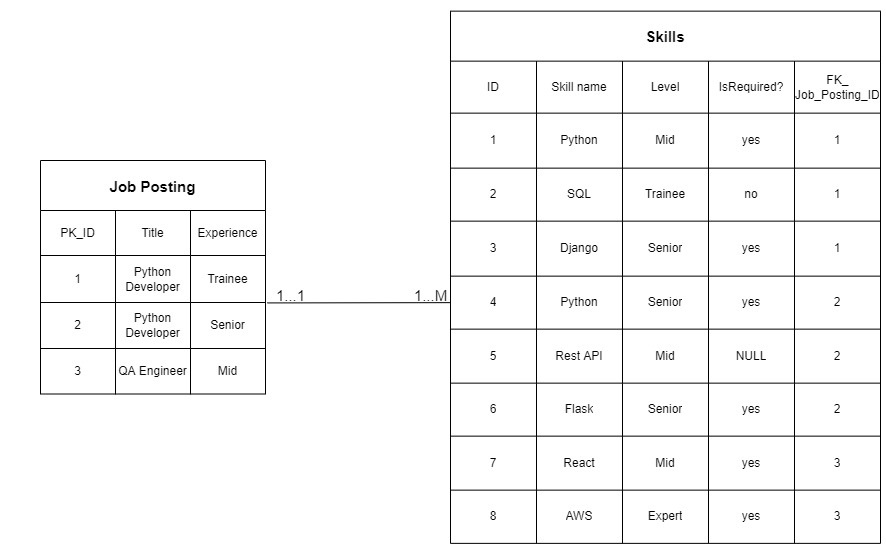I'm trying to create database in which I could store thousands of job postings. I put here 3 sample records of these job postings so that you could better understand how everything looks like:

Every row is a separate job posting.
Now, based on above data, I've created simple relational database schema filled with this data:

I have two questions here:
Job postingtable contains columnexperienceandSkillstable contains column namedlevel. These two columns have different names but actually contains same repeated values:trainee,junior,mid,senior,expert. Is this ok to have virtually same columns in two different tables?Repeated values in cells occur almost in every column. For example when you take a look at
titlecolumn inJob postingtable you'll see that there are two cells withPython Developervalue. The same story happens inskill namecolumn inSkillstable where you can find twoPythonvalues. I have thousands of job postings which means that there will be thousands repetitions in columns. Should I do something about this?
